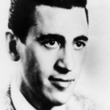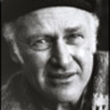Cat's cradle
Author
Publisher
Varies, see individual formats and editions
Publication Date
Varies, see individual formats and editions
Language
English
Description
“A free-wheeling vehicle . . . an unforgettable ride!”—The New York Times Cat’s Cradle is Kurt Vonnegut’s satirical commentary on modern man and his madness. An apocalyptic tale of this planet’s ultimate fate, it features a midget as the protagonist, a complete, original theology created by a calypso singer, and a vision of the future that is at once blackly fatalistic and hilariously funny. A book that left an indelible mark on an entire generation of readers, Cat’s Cradle is one of the twentieth century’s most important works—and Vonnegut at his very best.“[Vonnegut is] an unimitative and inimitable social satirist.”—Harper’s Magazine “Our finest black-humorist . . . We laugh in self-defense.”—Atlantic Monthly
More Details
Contributors
ISBN
9780385333481
9780062314352
038533348
9780808520696
9780440111498
9780061135217
9780307567277
9780805013191
9780062314352
038533348
9780808520696
9780440111498
9780061135217
9780307567277
9780805013191
UPC
9780062314352
Excerpt
Loading Excerpt...
Similar Titles From NoveList
NoveList provides detailed suggestions for titles you might like if you enjoyed this book. Suggestions are based on recommendations from librarians and other contributors.
These books have the appeal factors darkly humorous, stylistically complex, and unconventional, and they have the genres "satire and parodies" and "literary fiction"; and characters that are "exaggerated characters."
These books have the appeal factors haunting, stylistically complex, and unconventional, and they have the genre "literary fiction"; and the subject "human nature."
These books have the appeal factors stylistically complex and unconventional, and they have the genres "literary fiction" and "surrealist fiction"; and the subjects "human nature," "dishonesty," and "truthfulness and falsehood."
Both darkly humorous science fiction novels center on man-made disasters and serve chilling warnings about global environmental destruction. These thought-provoking, exaggerated stories are simultaneously entertaining and sobering, highlighting human failings like carelessness, apathy, greed, and hubris. -- Alicia Cavitt
Science runs amok in Cat's Cradle, a classic satirical novel, and The Visible Man. Though topically different, both books feature dark humor, edgy prose styles, and provocative themes. -- Jessica Zellers
J - Jacobson, Howard
These books have the appeal factors darkly humorous, stylistically complex, and unconventional, and they have the genres "satire and parodies" and "literary fiction"; the subject "disasters"; and characters that are "sympathetic characters."
These books have the appeal factors haunting, stylistically complex, and unconventional, and they have the subjects "human nature," "dishonesty," and "deception."
These thought-provoking satirical fiction novels use dark humor to confront life's absurdities through the stories of a disillusioned math professor (Dr. No) or a young writer (Cat's Cradle). -- CJ Connor
These books have the appeal factors stylistically complex, and they have the subjects "human nature," "fate and fatalism," and "end of the world."
The ultimate hitchhiker's guide to the galaxy: The hitchhiker's guide to the galaxy ; The restaurant at the end of the universe ; Life, the universe, and everything ; So long, and thanks for all the fish ; Mostly harmless - Adams, Douglas
The end of the world is approached with humor in these science fiction classics. Both are spare and fast-paced, though Cat's Cradle's sarcasm is darker than the often silly, always witty Hitchhiker's Guide to the Galaxy. -- Michael Shumate
These books have the appeal factors darkly humorous, stylistically complex, and first person narratives, and they have the genre "literary fiction"; the subjects "human nature" and "human behavior"; and characters that are "exaggerated characters."
In these Cold War era science fiction classics, neither science nor religion has the complete answer to the question of technological apocalypse. Cat's Cradle is more darkly humorous than the gently funny, impassioned, ultimately sobering A Canticle for Leibowitz. -- Michael Shumate
Similar Authors From NoveList
NoveList provides detailed suggestions for other authors you might want to read if you enjoyed this book. Suggestions are based on recommendations from librarians and other contributors.
Readers who enjoy Kurt Vonnegut's free-form, discursive later works, which satirize everything in a droll intellectual voice that never quite goes over the edge into sarcasm, may enjoy the whimsical novels of Romanian poet and essayist Andrei Codrescu. Codrescu's piquant stew of ribaldry and philosophy tickles both the mind and the funny bone. -- Katherine Johnson
Fans of Kurt Vonnegut's more lighthearted science fiction may enjoy the silly and irreverent humor of Douglas Adams. Although much of Vonnegut's writing is more darkly satirical than that of Adams, readers will find that both authors employ outlandish storylines, eccentric characters, and clever and unconventional use of language. -- Victoria Fredrick
Novels and short stories by both writers include flawed characters, wildly unpredictable plots, and wry observations about our species and our future. Kurt Vonnegut's fiction typically focuses on society's failings like war, injustice, and environmental destruction, while Philip K. Dick's work poses questions about future technologies, ESP, alternate realities, and theology. -- Alicia Cavitt
Both literary satirists write thought-provoking, darkly humorous novels about characters who try (and often fail) to come to grips with life's absurdities. -- CJ Connor
Theodore Sturgeon and Kurt Vonnegut humorously explore moral and existential dilemmas and expose the ability of human cruelty to produce alienation and social and sexual repression, yet their writing stays humorous, avoiding outright sarcasm. Both employ a variety of styles, from macabre horror to visionary fable (Sturgeon) to numerous science fiction subgenres (Vonnegut). -- Katherine Johnson
Fans of witty insights and experimental forms will enjoy the unique speculative fiction novels and short stories of Charles Yu and Kurt Vonnegut. Both writers create inventive storylines within familiar tropes and avoid scientific complexities by focusing on relatable human issues, social themes, and the impact of emerging technologies on society. -- Alicia Cavitt
Fans of satire will enjoy both James Morrow and Kurt Vonnegut, both of whom employ a lush, wildly inventive prose style and surreal, boisterous storylines in madcap adventures that explore and explode profound questions of good and evil, inspiration and idiocy. -- Katherine Johnson
These literary fiction authors craft witty, darkly humorous stories that humanize dramatic events, raise thought-provoking questions, and often highlight human failure or illustrate dire consequences of poor judgment. Both authors have stylistically complex and unconventional writing styles and have written novels, short stories, and nonfiction. -- Alicia Cavitt
Tom Robbins' novels will appeal to those who appreciate Kurt Vonnegut's more humorous novels. Both feature anything-goes storytelling, curious characters, wry commentary, and playful treatment of deep subjects, though Vonnegut's books sometimes come to different conclusions than those Robbins would reach. -- Katherine Johnson
These literary fiction authors combine clever prose with zany unconventional plotlines that are thought-provoking, poignant, and reflective. Their wry and witty observations include ruminations on history, society, and geopolitics. Stories often include fictional authors and elements of science fiction. Both have written about time travel and characters with memory issues. -- Alicia Cavitt
Both authors use a conversational and engaging writing style to create quirky, offbeat fiction and provocative nonfiction books filled with witty, pointed commentary on human nature and American culture. David Sedaris often writes about his own family and modern society while Kurt Vonnegut's books tackle topics like war and injustice. -- Alicia Cavitt
Though of different generations and backgrounds, both authors write candid, engaging, and witty issue-oriented nonfiction that offers accessible -- and often incisive or provocative -- social commentary. Kurt Vonnegut's nonfiction frequently revolves around politics, art, war, and morality, while Tressie McMillian Cottom writes about race, feminism, and higher education. -- Alicia Cavitt
Reviews from GoodReads
Loading GoodReads Reviews.
Staff View
Loading Staff View.



































